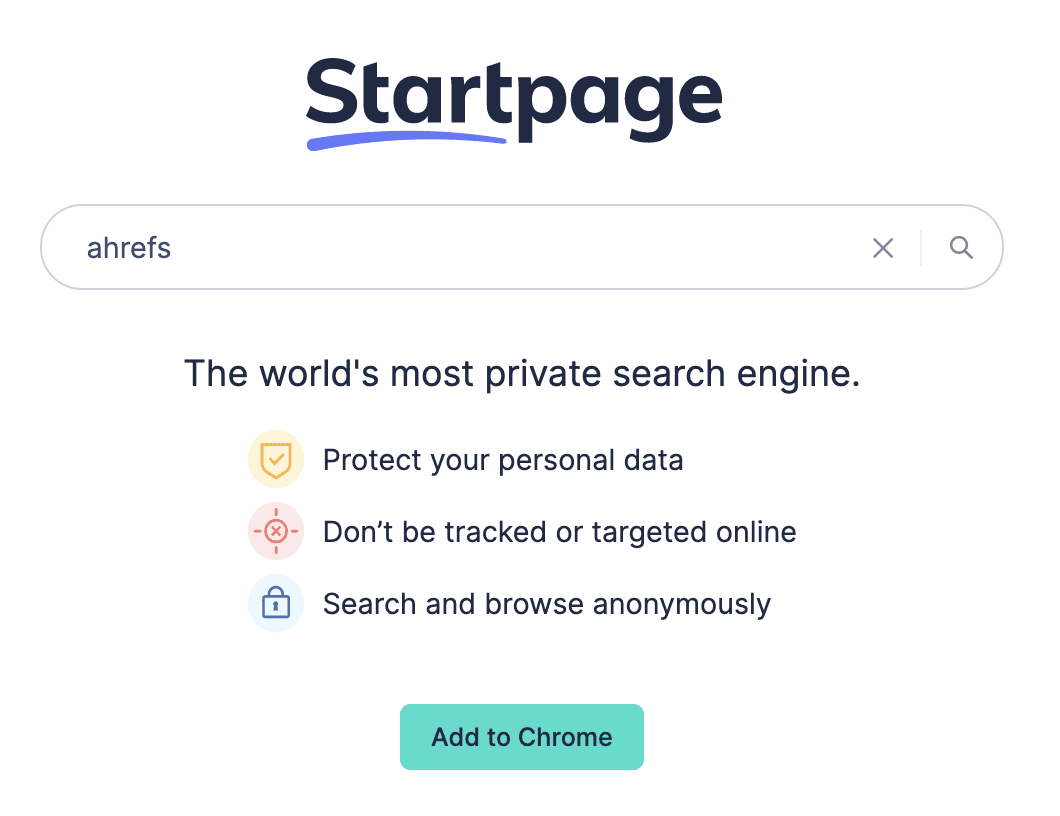Protecting your privacy online is a crucial task in today’s digital age. With the increasing amount of personal data being shared online, it’s important to be aware of the potential risks and take steps to safeguard your information. One way to protect yourself is by using alternative search engines that prioritize user privacy.
Search engines like Google and Bing may be the most popular, but they also collect and store massive amounts of user data. Alternative search engines, on the other hand, offer a more private and secure search experience. These search engines do not track your searches, nor do they collect your personal information. By using these search engines, you can protect your privacy and avoid the risks associated with data breaches and online tracking.. You may need to know : Clear Your Tracks: A Step-by-Step Guide to Deleting Google Search History on Android
As technology continues to advance, so does the concern for online privacy. With major search engines like Google and Bing collecting and storing vast amounts of personal data, it’s important to consider alternative options that prioritize privacy. In this article, we’ll explore the top alternative search engines to try today and their features and benefits.
Table of Contents
Introduction to Privacy Concerns
When you use a search engine, you’re essentially giving them access to your personal information. This includes your search history, location data, and even the device you’re using. Major search engines like Google and Bing collect and store this information to better target advertisements and personalize your search results. However, this can come at the cost of your privacy.
This is where alternative search engines come in. These search engines prioritize privacy by not collecting or storing personal data, ensuring that your online activity remains private and secure.
Popular Search Engines vs. Alternative Options
Google and Bing are undoubtedly the most popular search engines, but they’re not the only options. Other popular search engines include Yahoo, DuckDuckGo, and AOL Search. However, these search engines still collect and store personal data, albeit to a lesser extent than Google and Bing.
Alternative search engines prioritize privacy by not collecting or storing personal data. This means that your search activity remains anonymous and secure. While these search engines may not offer the same level of personalization and convenience as major search engines, they provide peace of mind when it comes to online privacy.
Top Alternative Search Engines to Try
1. DuckDuckGo – This search engine is known for its strict privacy policy. It doesn’t collect or store any personal data, ensuring that your search activity remains anonymous. It also offers a range of features, including private browsing and a “bang” feature that allows you to search specific websites directly from the search bar.
2. StartPage – This search engine uses Google’s search algorithm, but with the added benefit of privacy. It doesn’t collect or store any personal data and offers a range of features, including proxy browsing and anonymous searching.
3. Qwant – This search engine is based in Europe and prioritizes privacy by not collecting or storing personal data. It also offers a range of features, including private browsing and a news section that only displays articles from reputable sources.
Features and Benefits of Each Option
DuckDuckGo prioritizes privacy by not collecting or storing personal data. This ensures that your search activity remains anonymous and secure. It also offers a range of features, including private browsing and a “bang” feature that allows you to search specific websites directly from the search bar.
StartPage uses Google’s search algorithm, but with the added benefit of privacy. It doesn’t collect or store any personal data and offers a range of features, including proxy browsing and anonymous searching. This ensures that your search activity remains anonymous and secure.
Qwant is based in Europe and prioritizes privacy by not collecting or storing personal data. It also offers a range of features, including private browsing and a news section that only displays articles from reputable sources. This ensures that your search activity remains anonymous and secure, while also providing access to high-quality news content.
Conclusion and Final Thoughts
Online privacy is a growing concern in today’s digital age. With major search engines collecting and storing vast amounts of personal data, it’s important to consider alternative options that prioritize privacy. DuckDuckGo, StartPage, and Qwant are all great options to consider when it comes to online privacy. By using these search engines, you can ensure that your search activity remains anonymous and secure.
Frequently Asked Questions
DuckDuckGo is a popular alternative search engine that doesn’t track your search history or personal information. It also offers other privacy features, such as forcing websites to use encrypted connections when possible.
StartPage
StartPage is another search engine that prioritizes user privacy. It doesn’t track your searches or store any personal information, and it also offers the ability to browse websites anonymously.
Qwant
Qwant is a European search engine that doesn’t collect or track any personal data. It also offers a unique feature called “Qwick Search shortcuts,” which allows you to search for specific types of content (such as images or videos) without having to navigate through menus.
How do these alternative search engines differ from mainstream options like Google and Bing in terms of privacy protection?
Unlike mainstream search engines, alternative options like DuckDuckGo, StartPage, and Qwant don’t collect or store any personal information. This means that your search history and other data won’t be used for targeted advertising or other purposes. Additionally, these alternative search engines often offer additional privacy features, such as encrypted connections and anonymous browsing.
Are there any downsides or limitations to using alternative search engines for protecting your privacy?
One potential downside to using alternative search engines is that they may not offer the same level of accuracy or functionality as mainstream options like Google. Additionally, since these search engines don’t collect personal data, they may not be able to provide personalized search results or recommendations. However, if you’re willing to sacrifice some level of convenience for increased privacy, alternative search engines can be a great option.
Conclusion
Thanks for visits imagerocket.net for taking the time to read through this article on the top alternative search engines to try today in order to protect your privacy. In today’s digital age, privacy has become increasingly important as more and more of our personal information is being shared and collected without our knowledge or consent. It’s essential that we take steps to protect our privacy and ensure that our online activity remains confidential.
The search engines we’ve covered in this article are all excellent options for those looking to keep their online activity private. From privacy-focused search engines like DuckDuckGo and StartPage to decentralized search engines like YaCy and Searx, there are plenty of alternatives to traditional search engines that put your privacy first.
In addition to using alternative search engines, there are also other steps you can take to protect your privacy online. These include using a VPN, avoiding public Wi-Fi networks, and being mindful of the information you share on social media.
Ultimately, the choice to protect your privacy is up to you. By using alternative search engines and taking other steps to safeguard your online activity, you can take control of your digital footprint and keep your personal information safe from prying eyes. Thank you again for reading, and we hope this article has been helpful in your quest for online privacy.



